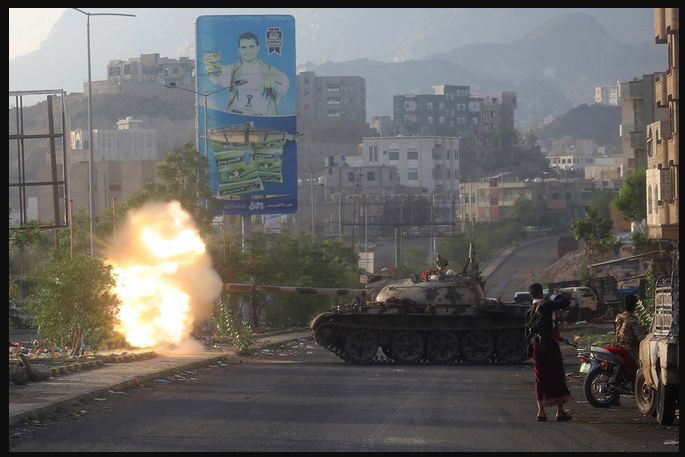Yemeni Soldier Killed in Houthi Drone Attack in Saada Province
Saada – In a tragic incident that marks the second drone attack in a week, a Yemeni government soldier was killed and several others were injured in a Houthi drone attack in the northern province of Saada.
The attack targeted a military parade held by Yemeni government forces in Baqoum district, commemorating the 61st anniversary of the Sept. 26 Revolution.
According to Hadi Tarshan, the governor of Saada, the Houthis launched multiple explosive-laden drones during the military parade. Although the army managed to shoot down several of the drones, one drone successfully hit its intended target, resulting in the death of a soldier and the injury of several others.
Governor Tarshan expressed his frustration, stating, “We, the residents of Saada, have known the Houthis since 2004, and we know that they will not honor any deal or truce unless they are weak. What happened today demonstrates this.”
This incident follows a similar attack last week when four Bahraini soldiers were killed in a Houthi drone attack near the Saudi Arabia-Yemen border. Despite a UN-brokered ceasefire implemented in April of the previous year, hostilities have not completely ceased. The Houthis continue to launch ground attacks and employ drones and missiles, targeting government-controlled areas and military installations in various provinces, including Taiz, Marib, Dhale, and Lahi.
Yemeni political and military observers believe that the recent surge in hostilities serves multiple purposes for the Houthis. It is viewed as a message to their supporters, who are under pressure to pay public employees and Saudi Arabia, and an attempt to assert their strength and exert pressure on the Kingdom to accept their peace demands.
Military analyst Brig. Gen. Mohammed Al-Kumaim emphasized the Houthis’ tactics, stating, “The intent was to send a message to the inside (Yemen) to boost their followers’ morale and divert attention away from what was happening in Sanaa. In addition, they are sending a message to Saudi Arabia to take their requests seriously.”
Al-Kumaim also cautioned against yielding to the Houthis’ demands, as they have a history of continually escalating their demands and engaging in military operations even after concessions are made. “This is the Houthis we know: they are covenant breakers, deceivers, and traitors who will exploit any opportunity to attack others, even during a truce. When their demands are satisfied, they increase them without making any concessions,” he added.
In recent events unrelated to the drone attack, the Houthis have further demonstrated their oppressive tactics. Last week, they abducted over 1,000 Yemeni individuals in Sanaa and Ibb who had gathered to commemorate the revolution’s anniversary. The Houthis perceived the public gathering as a challenge to their control and a violation of their ban on public gatherings.
Furthermore, on the same day as the drone attack, the Houthis prevented four Yemeni activists from the rights organization Mwatana from boarding a plane bound for Amman, Jordan. The activists were interrogated, had their exit visas invalidated, and were forced to leave the airport without any explanation.
Rasheed Al-Faqih, the vice president of Mwatana and one of the affected activists, condemned the Houthis’ actions, stating, “It is another infringement of Yemeni men’s and women’s right to freedom of movement committed by the Houthi organization. With its protocols and decrees, the organization has undermined the Republic of Yemen’s effective constitution and all national laws and legislation.”
The recent drone attack and the escalating hostilities highlight the challenges Yemen continues to face in achieving lasting peace and stability. The actions of the Houthis underscore the urgent need for a comprehensive resolution to the conflict that addresses the concerns of all parties involved.



